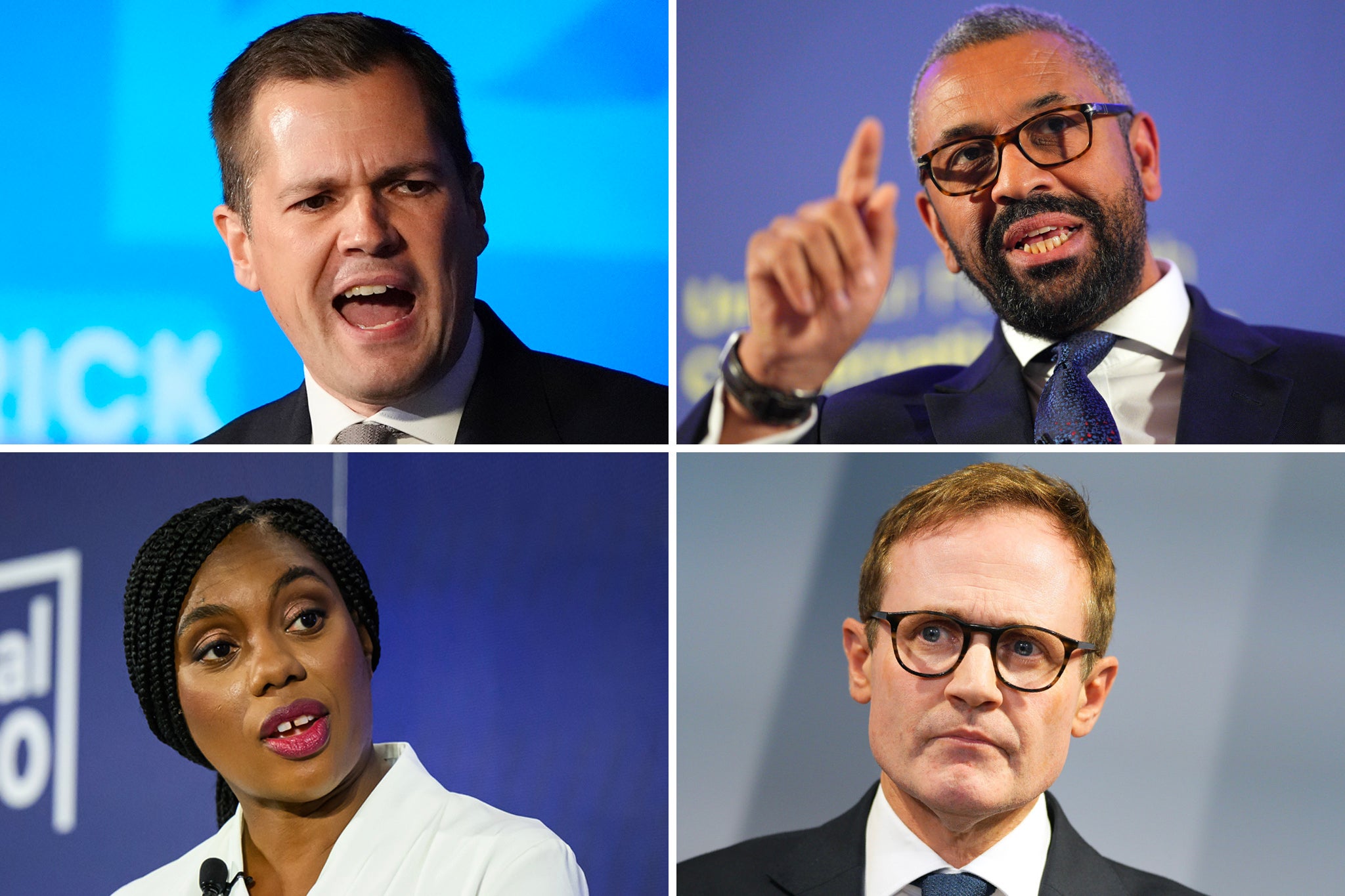Is the Tory conference worth paying attention to this year?
As the Conservatives head to Birmingham this weekend for their annual gathering, Sean O’Grady wonders what they will find to talk about as they pick themselves up, dust themselves off, and start all over again


Dazed, confused, but with more than a hint of defiance (foolish or otherwise), the Conservatives meet for their party conference in Birmingham with some important business to transact. The members and MPs will see a great deal of the four remaining leadership candidates, and naturally there will be much discussion about what went wrong for the party in the general election (and before). Robert Jenrick is now the bookies’ favourite, having overtaken Kemi Badenoch, with James Cleverly and Tom Tugendhat the outsiders – but that could all change.
The official theme is “Review and Rebuild”, which sounds about right. Given their fratricidal tendencies, however, and the spectral presence of Boris Johnson through the medium of his memoir Unleashed, it could easily descend into acrimony. The Tories may not be too relevant right now, but it will be entertaining...
Isn’t it going to be a bit of a beauty contest?
If that’s not too sexist an expression, it sure is. The four contenders for the thankless task of leader of the opposition will be putting themselves about a bit, at receptions, two sets of Q&A sessions (on Monday and Tuesday afternoons), and their Apprentice-style leader’s speech contest after lunch on Wednesday. They will be given 20 minutes each to sell themselves and their “vision” to the constituency activists and their parliamentary colleagues. They will speak in the following order, according to the agenda: Tugendhat; Cleverly; Jenrick; Badenoch.
The situation is reminiscent of the 1963 and 2005 party conferences, when the jamboree also coincided with the search for a new leader. Indeed, in each case, a lacklustre platform performance by the presumed heir and frontrunner resulted in a bit of an upset. In 1963 it was Rab Butler who suffered from a rather flabby and complacent address, costing him the succession to Harold Macmillan along with the post of prime minister; Lord Home, later Sir Alec Douglas-Home, was the unlikely beneficiary of a rather messy fight.
Almost 40 years on, it was David Davis’s turn to flunk it, and David Cameron’s chance to shine, speaking extempore and with that polished finish the country was soon to become familiar with. No pressure, then.
Where’s Rishi?
He’ll be there on Sunday, and will then go away and let them get on with it. So there’ll be a farewell reception where he may say a few words, but no keynote platform speech, leaving the proceedings a bit rudderless. What passes for a focus will be provided intermittently by the party chair, Richard Fuller.
Anyone else to look out for?
If you’re interested, there are some potential young talents coming through, such as Nick Timothy (albeit co-architect of the 2017 election debacle), and Katie Lam, who worked in No 10 with Johnson. There are some older faces at conference, too – a reminder of battles won, lost, and still being fought in the Tories’ ceaseless civil wars – with Bill Cash, John Redwood and Mark Francois appearing at an unironic fringe session titled “The future of the Conservative Party”.
It will be interesting to see which, if any, of the very many former leaders still extant turn up for a surprise – the full cohort of John Major, William Hague, Michael Howard, Cameron, Theresa May, Johnson and Liz Truss would be almost enough for a shadow cabinet of their own. (Iain Duncan Smith, who is still an active MP, will be in attendance.)
What will the talking points be?
The usual. Were they too right-wing or not right-wing enough? Who is to blame? What to do about Nigel Farage and Reform UK? Ditto the Liberal Democrats. Immigration. Net zero. Trans rights. Centralising control over independent institutions such as the BBC and the Bank of England. The stuff about Starmer and the freebies. Democratising the party and giving more power to the membership at the expense of MPs. Who’s going to get deputy leader/shadow chancellor/party chair.
Not that much attention given to the economy, schools and the NHS, which is the problem.
Who’s going to be the new leader?
We may well have a better idea by the end of the conference, but it’s still hard to judge. Not that many of the 121 members of the parliamentary party – just 55 – have yet openly declared for a candidate, no doubt in some cases with an eye to backing the most likely winner, irrespective of their views. The MPs will select the final two in a ballot or ballots on Wednesday 9 and Thursday 10 October.
The last two will then be on the ballot put to the circa 170,000 members, with the result declared on 2 November. There’ll then be a new shadow cabinet, and the next phase of the civil war – sorry, process of renewal – can proceed.
How much to be leader, then?
The party demanded £50,000 from each of the original six candidates to enter the contest; those remaining will be required to find another £150,000 to qualify to be on the final shortlist of two. The total campaign spending cap has been set at £400,000. Given the furore around donations, it will be interesting to examine the final list of generous donors (some are already in the public domain, but have thus far attracted little attention).






Join our commenting forum
Join thought-provoking conversations, follow other Independent readers and see their replies
Comments